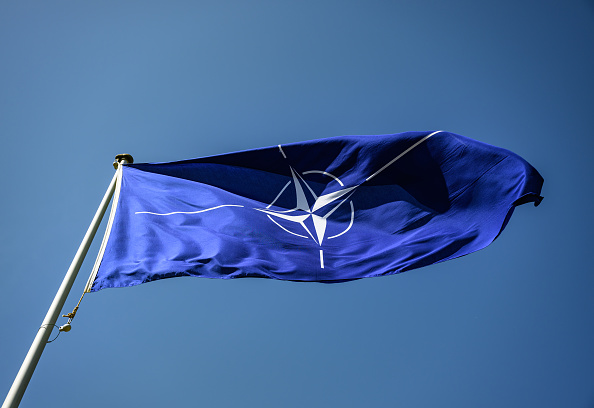Joining this week’s meeting of NATO leaders in Washington will be some countries far from Europe or North America – Australia, Japan, New Zealand and South Korea.
Who is coming and what is the link between NATO, which was founded to help the North Atlantic region counter the threat from the Soviet Union, and countries in Asia and the Pacific?
Which Indo–Pacific leaders will attend?
Japanese Prime Minister Fumio Kishida, South Korea’s President Yoon Suk Yeol, New Zealand Prime Minister Christopher Luxon and Australian Deputy Prime Minister and Defense Minister Richard Marles are all attending.
This is the third successive NATO summit for the countries, referred to as the Indo–Pacific Four (IP-4). They are due to hold a session with NATO and EU leaders on Thursday amid rising concerns that China might attack Taiwan and worries about Russia’s stepped-up security ties with China and nuclear-armed North Korea.
U.S. President Joe Biden’s administration has worked to strengthen ties in the Indo–Pacific, including with India, and has been disappointed by Indian Prime Minister Narendra Modi’s visit to Moscow just ahead of the NATO meeting, which he will not attend.
Australian Prime Minster Anthony Albanese also will not be at the summit, given domestic political priorities.
What is behind NATO‘s interest in the region?
U.S. allies globally are increasingly aligned in their opposition to Russia’s war in Ukraine, and Moscow’s “no limits” partnership with China, which is helping to reconstitute the Russian military.
In 2022, NATO members identified China as a potential threat for the first time. At the 2023 NATO summit in Vilnius, they condemned China and Russia for “their mutually reinforcing attempts to undercut the rules-based international order,” and warned about Beijing’s “coercive tactics” to divide the Alliance.
A draft of the Washington summit statement called China a “decisive enabler” of Russia’s Ukraine war effort and said Beijing poses systemic challenges to Europe and to security.
It stressed the importance of the Indo–Pacific to NATO, saying developments there directly affect Euro-Atlantic security, and welcomed enhanced cooperation with Asia-Pacific partners to support Ukraine.
U.S. national security advisor Jake Sullivan said the NATO allies and Indo–Pacific partners would launch four new joint projects – on Ukraine, artificial intelligence, disinformation, and cybersecurity.
But while the Biden administration pushed for European allies to pay more attention to the Indo–Pacific after Biden took office in 2021, talk with Indo–Pacific countries this time will likely be more about how they can help Ukraine’s war effort.
What steps have NATO members taken in the Indo–Pacific?
Recent years have seen some stepped up European engagement in the Indo–Pacific, notably Britain’s involvement with the U.S. in the AUKUS project to provide nuclear-powered submarines to Australia.
However, most European defense engagement in Asia has been ad hoc and modest, involving occasional patrols or exercises by small visiting forces. Many NATO allies and Indo–Pacific countries do not want to see the alliance expanding its remit beyond the North Atlantic theater.
A proposal to establish a NATO liaison office in Tokyo, which angered China, was blocked by France last year.
What is next for NATO involvement in the region?
Some analysts contend that Europe’s NATO members must boost their ability to deal with European security challenges to enable the U.S. to focus on Asia and threats posed by China, including the dispute over Taiwan, the democratic island Beijing claims as its territory.
Christopher Johnstone, a former senior official in Biden’s National Security Council, said the biggest contribution Europe could make was “to ensure that it is prepared to shoulder the burden of deterrence against the Russian threat in the event of a Taiwan or other contingency in the Indo–Pacific.”
NATO has touted efforts by members to meet defense spending goals of 2% of GDP, but analysts say that decades of low spending have left most countries unable to play any meaningful role the Indo–Pacific.
“There’s nothing (NATO countries) can really do that would make a material difference,” in an Indo–Pacific conflict, said Elbridge Colby, a former Pentagon official in the Trump administration.
Colby said most European militaries would be reliant on the U.S. for basic logistics.
“It’s entirely possible that their contribution would be a net negative,” he said.
(Reuters)




















